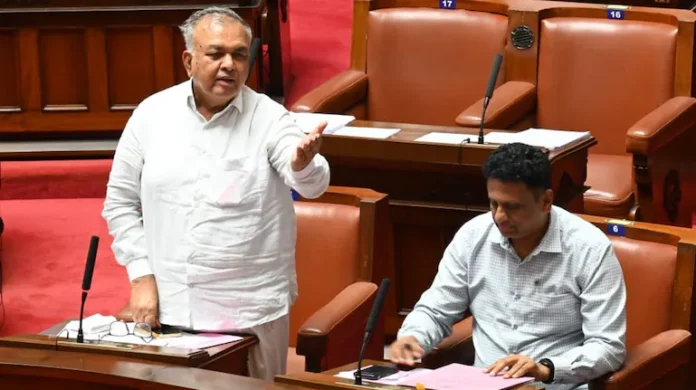Introduction
In a major development, Karnataka Transport Minister Ramalinga Reddy has written to the Union Ministry of Heavy Industries, expressing serious concerns over the poor performance and operational inefficiencies of electric buses (e-buses) procured under the lease model. The minister highlighted that the current arrangement is causing severe financial and service challenges to state transport corporations, especially the Bengaluru Metropolitan Transport Corporation (BMTC) and the Karnataka State Road Transport Corporation (KSRTC).
Key Issues Highlighted in the Letter
According to officials, the minister’s letter to the Centre details several operational setbacks, including:
-
Frequent breakdowns of leased e-buses, leading to service disruptions.
-
Poor charging infrastructure and delays in maintenance by private operators.
-
High lease payments that do not justify the operational output.
-
Reduced route efficiency due to long charging times and low mileage.
“The lease model has not yielded the expected results in Karnataka. Instead of reducing carbon emissions effectively, the model has added financial strain to the state’s public transport agencies,” the letter reportedly stated.
E-Buses Under the Lease Model: A Background
Under the FAME-II (Faster Adoption and Manufacturing of Hybrid and Electric Vehicles) scheme, several Indian states, including Karnataka, adopted the Gross Cost Contract (GCC) or lease model.
In this model, the central government subsidizes electric buses, and private operators provide the vehicles and maintenance services for a fixed per-kilometre charge.
However, multiple states — including Delhi, Maharashtra, and Karnataka — have now reported issues such as service inconsistency, contractual delays, and lack of technical support from vendors.
Operational Concerns in Karnataka
Karnataka operates more than 1,000 e-buses under the lease arrangement, with around 650 deployed in Bengaluru. Transport officials report that:
-
Nearly 25–30% of these buses remain non-operational on any given day due to maintenance or charging issues.
-
Private operators are slow in replacing defective vehicles.
-
BMTC’s revenue loss from idle buses and delayed routes is mounting.
“The model works only when private operators ensure uptime and maintenance reliability. Unfortunately, we are not witnessing that level of performance,” said a senior BMTC official.
Minister’s Recommendations to the Centre
In his communication, Minister Reddy has urged the Union Government to:
-
Review the lease-based model under FAME-II and explore direct procurement for states.
-
Provide flexibility for states to adopt a hybrid procurement model, combining owned and leased buses.
-
Increase central support for maintenance infrastructure and fast-charging facilities.
-
Set performance-based incentives or penalties for private suppliers.
He also recommended that future contracts include stricter service uptime clauses and financial accountability mechanisms.
Impact on Public Transport and Commuters
BMTC’s goal of achieving a green and fully electric fleet by 2030 has taken a setback due to these challenges.
Daily commuters in Bengaluru have complained about inconsistent bus availability, especially during peak hours.
“The buses are comfortable and eco-friendly, but their frequency has dropped sharply in the last few months,” said a commuter at Majestic Bus Stand.
Industry Response
Private operators, on the other hand, have defended their position, citing inadequate charging infrastructure and delayed government payments as reasons for operational hurdles.
They have called for joint responsibility frameworks between transport corporations and service providers to improve outcomes.
Centre’s Likely Response
Officials in the Ministry of Heavy Industries confirmed receipt of the letter and said a review meeting may soon be held with state transport ministers and electric vehicle manufacturers to assess the lease model’s long-term viability.
Conclusion
The Karnataka government’s strong stance adds to growing national debate over whether India’s e-bus revolution can sustain under the lease model. As states push for cleaner public transport, policymakers now face a critical choice — continue the current system or transition to a more flexible, ownership-driven model that ensures performance, sustainability, and cost-efficiency.



